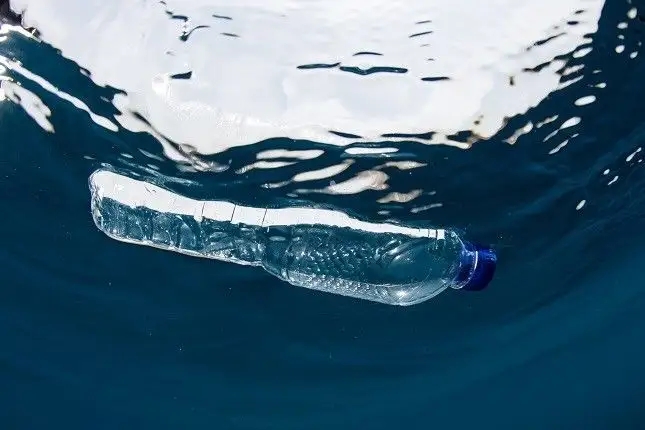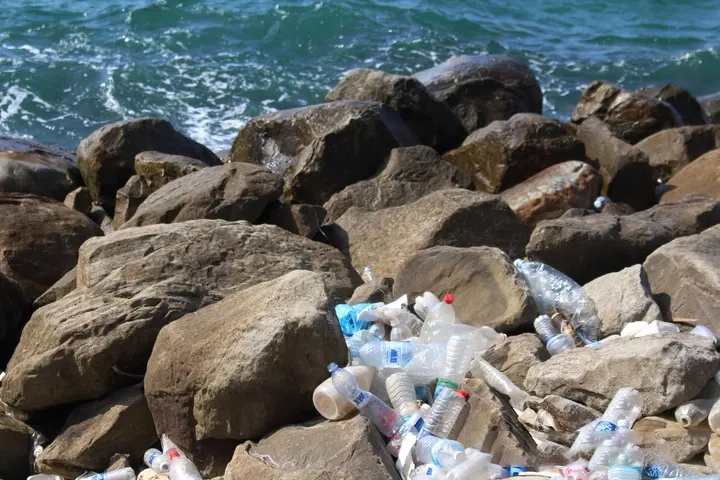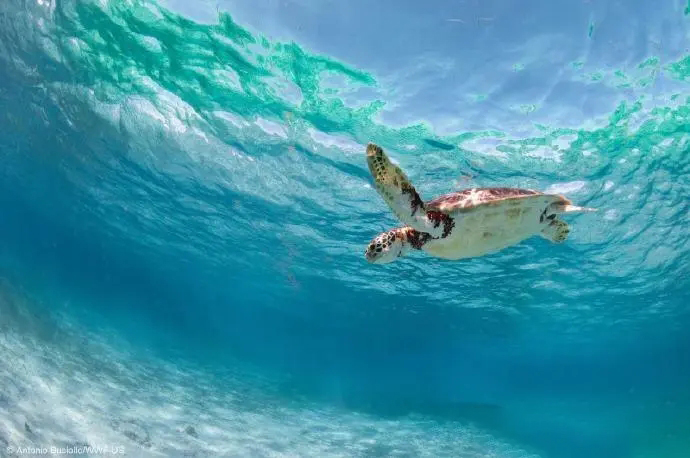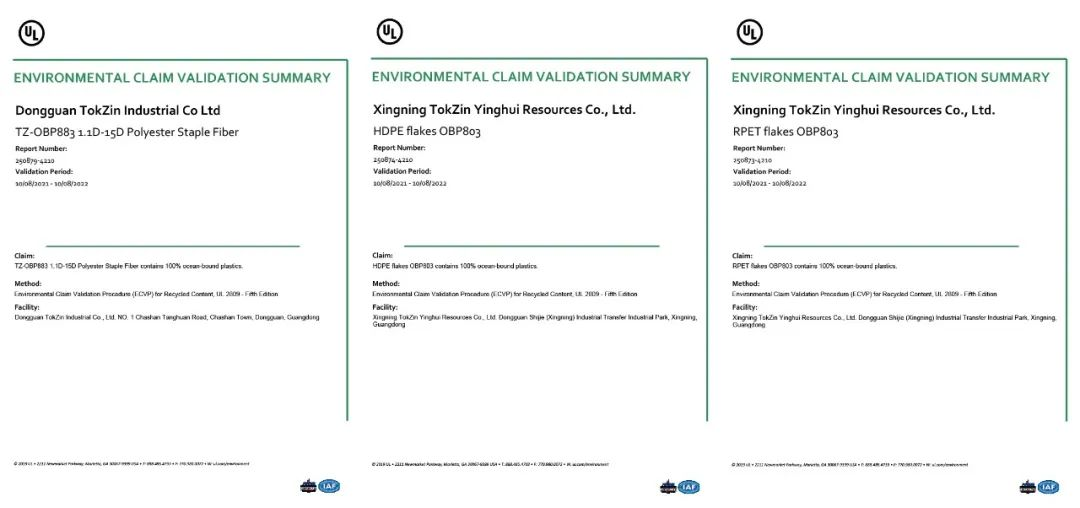


-
7 About
-
3 PETmarterial
-
8 Fiber series
-
6 PET packing
-
3 Protection
-
3 R & D Center
-
4 CSR
-
2 Environmental protection



clean up ocean plastic 丨let's guard this blue ocean!
发表时间 :2022-07-12
作者 :广东盈拓

 In 2016, Eurostat released a report on total global plastic production, saying that annual global plastic production has grown by 4%, and by 20% (56 million tons) over the past five years. A total of 335 million tons of plastics are produced, of which China is one of the largest plastic producers, accounting for about 25% of the world's total plastic production. The convenience and pollution of plastic are synchronized, sounding the alarm for the earth. Among them, the white pollution in the ocean is more serious.
In 2016, Eurostat released a report on total global plastic production, saying that annual global plastic production has grown by 4%, and by 20% (56 million tons) over the past five years. A total of 335 million tons of plastics are produced, of which China is one of the largest plastic producers, accounting for about 25% of the world's total plastic production. The convenience and pollution of plastic are synchronized, sounding the alarm for the earth. Among them, the white pollution in the ocean is more serious.
NO.1
Marine PM2.5


"Plastic entangles a large number of marine life, and some drown because of it. When plastic breaks down in the ocean, it combines with other pollutants, and the combination is ingested by marine life." Naturalist David Aiden Fort said in the BBC documentary "Blue Planet 2" that, turtles and fish were entangled in garbage bags and glue strips, making it difficult for them to escape.
Data show that 75% to 90% of the plastic debris in the ocean comes from land, especially densely populated areas. With the flow of seawater, plastics migrate over long distances. They are weathered and cracked into "microplastics" in the ocean for a long time, causing serious marine plastic pollution. They are also known as marine PM2.5.
In 2004, British scholars published a paper on plastic debris in marine water bodies and sediments in the journal Science, and first proposed the concept of "microplastics" - plastic fibers, particles or films with a diameter of less than 5 mm. In March 2015, the Canadian government recommended that the size of microplastic particles be defined between 0.01 mm and 5 mm.
Plastic pollution is the nightmare of every living being, and it also affects humans themselves.
At the end of October 2018, the research data released by the European Joint Gastroenterology Week made people feel the "skin pain" for the first time. Scientists from the Austrian Environment Agency and the Medical University of Vienna targeted eight volunteers and tracked their diets. The volunteers came from Italy, Japan, Poland, the Netherlands, Russia, the United Kingdom, Finland and Austria, and 6 of them had fish and other seafood in their diets.
After a week of observation, the researchers detected plastic particles from the fecal extracts of each volunteer, with an average of about 20 plastic particles per 10 grams, covering almost all types of plastics. This is the first time in human feces. Microplastics was found.
NO.2
‘Warning' from plastic
"Smaller plastic particles are more likely to pass through the intestinal wall and into other tissues, so people need to know more about the absorption and distribution of those smallest particles," said Jennifer de France, a WHO technologist.
Plastic particles larger than 150 microns in diameter will be excreted by the human body, and smaller particles will affect intestinal tolerance and destroy human immune function. Some studies have pointed out that microplastics drift from land to ocean through rivers. During this process, some microplastics can be further degraded to the micron or even nanometer level, so there is a higher risk of entering cells or organisms, and the river itself also accumulates a large amount of Microplastics.
Microplastics are like the "butterfly effect". On August 22, 2019, the World Health Organization recently released an analysis report entitled "Microplastics in Drinking Water", pointing out that microplastics are ubiquitous in the environment - seawater, wastewater, fresh water, food, air, bottled Different concentrations of microplastics were detected in water, tap water and other sources. Plastics have brought many conveniences to human production and life, but some plastics cannot be recycled into the environment, broken and degraded, causing serious pollution and even threatening human health...
Although the world pays more and more attention to "garbage" disposal and environmental protection, the earth's creatures still remind human beings in different forms that it is not enough... In mid-September 2019, dolphins were on the hot search because of "garbage", "Scientific Reports" " magazine published a study that found "mixed pollutants" in dolphins near the English Channel, including high concentrations of mercury, polychlorinated biphenyls and dioxins, among which mercury levels reached an all-time high.
"We have a unique role in history, we've never cared so much about what we do to the planet, and we've never had the power to do something, and of course we have a responsibility to care about our blue planet, The future of humanity and all life on earth depends on us.” said David Attenborough.
Doing your best to sort garbage and save resources has become a compulsory course for everyone, and children are no exception.
Guangdong Intop, The first company in the Guangdong-Hong Kong-Macao Greater Bay Area to be awarded the OBP certification

On October 8, 2021, Guangdong Intop Holdings and its subsidiaries-Tokzin Yinghui and Tokzing Industrial have both been awarded the UL 2809 Ocean Bound Plastic #Ocean Plastic # (OBP) content verification certificate issued by UL. It is reported that Intop Holding is the first recycler, material supplier and material application provider in the Guangdong-Hong Kong-Macao Greater Bay Area to obtain UL 2809 Ocean Bound Plastics #Ocean Plastics# (OBP) content verification.
Today's ocean pollution is getting worse, Intop Holding has been committed to the recycling of marine plastics, reducing pollution for the ocean and all human beings and making the public healthy. It has been verified that the recycling of plastics from the sea and oceans can effectively reduce the amount of plastic waste and avoid plastic waste pollution in waterways, lakes, rivers and marine water bodies. As a leading enterprise in the recycling industry, Intop Holding is committed to innovation, provision and use of sustainable materials, and actively verifies that the recycled plastics belong to the content of marine recycled plastics, hoping to drive the social impact of this move and protect our oceans and marine life together!
